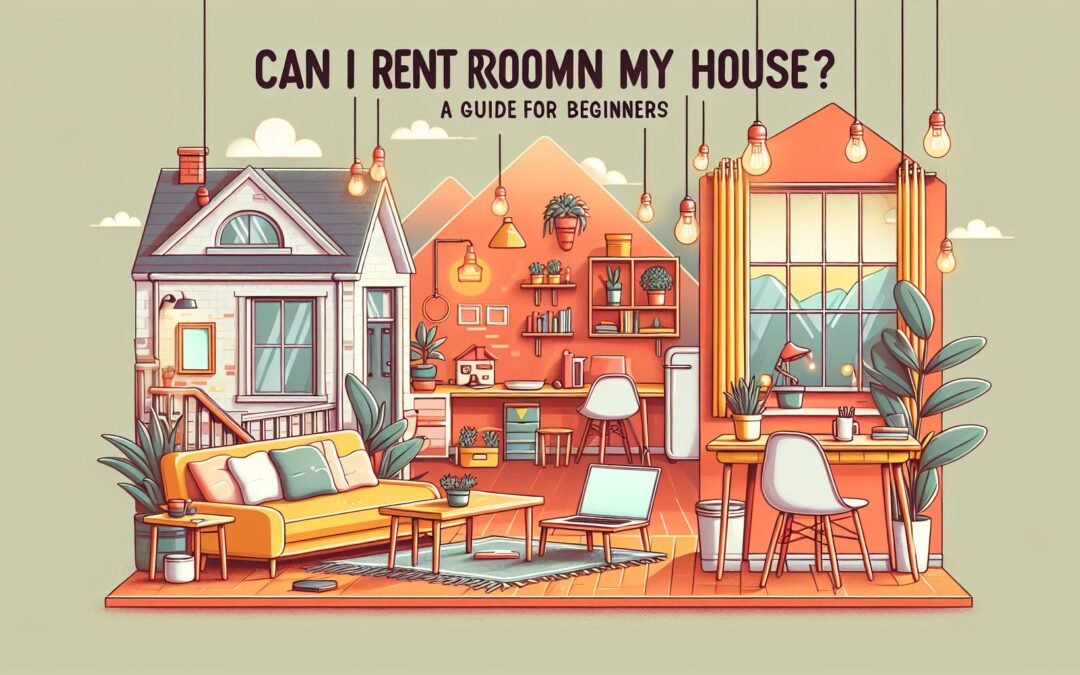Can I rent rooms in my house?
Renting out a spare room can be very profitable but it is important to evaluate the space’s potential before jumping into anything. The first thing to do is look at how big, what configuration and condition the room you are thinking about renting is in. Is there enough space for a tenant comfortably with room left over for them to have a bed, dresser or other necessary furniture pieces? Does the area get good natural light and have proper ventilation? It also helps to think about features or amenities that might make people want to live there more such as having its own entrance, bathroom or even kitchenette; these can all add convenience and raise prices when renting.
Then consider demand: What is the housing market like in your area? Look up other rentals available nearby on websites like Craigslist or Zillow; see what they look like and how much they cost per month. This will give you an idea of what you will be competing against so that way when setting your own rental price it can be both fair yet still make money. Think about who lives around here too — are most residents young professionals, students, families looking for cheap places near work/schools etc.? Knowing this should help shape what kind of space one might provide as well as where said accommodation ought to be offered.
Lastly calculate income possibilities: How much could someone potentially earn by letting others stay overnight? Consider utility costs (water/electricity), maintenance fees plus any necessary updates/repairs – some seasons may bring higher demands therefore use rates accordingly. Weigh these numbers against each other until reaching conclusion if turning part of one’s home into an inn would indeed prove profitable.
What Else You Need To Know
Location – Assess whether location is viable based off factors such as safety/distance from attractions.
Laws – Inquire about permits needed/taxes due for running accommodation business legally.
Comfortability – Ensure guests have basic needs met (e.g. clean sheets) along with addressing any issues that arise during their stay.
Competition – Set prices low enough to attract customers but high enough so they don’t undercut competitors.
Marketing – Advertise effectively while screening potential tenants carefully in order to get those who fit best with space available.
Legal and Regulatory Considerations: Understanding the Rules and Regulations
Can i rent rooms in my house? Before you start renting out rooms within your home, it is imperative to understand what is legally required of you. Begin by researching zoning laws within the area where you live as well as other property regulations that apply specifically to residential spaces like yours. Some neighborhoods may prohibit people from using their houses for businesses such as short-term rentals therefore make sure this isn’t against any local ordinances.
Another thing one should do before opening up shop would be obtaining necessary permits/licenses; depending on where someone lives they might need a rental permit, business license or even special zoning clearance granted just so long as these are made known ahead of time there won’t be any problems down the line. Do some research on what all is demanded in your city or town so that way it’s clear which forms need filling out and where they should go when complete
Getting to know about tenant rights and landlord responsibilities is one part of the legal and regulatory consideration. Look into what security deposits, eviction procedures for example require according to law. Ensure that your rental agreement complies with the local laws on housing protection of tenants’ rights and be ready for any conflict resolution during tenancy period.
Last but not least, consider tax implications when renting out a room. Rental income is generally subject to taxation and may have to be reported in annual tax returns. Seek advice from a tax expert who will help you determine how much you should pay as well as if there are any deductions or exemptions available based on different scenarios surrounding rental property ownership.
Once you have gathered the necessary information, this is the time to decide on a competitive and profitable rental rate. Start by calculating your estimated expenses such as utilities, maintenance, and any applicable taxes or fees. Add a reasonable profit margin to get your target rental price. Don’t forget to take into account potential seasonal fluctuations in demand – you might need to adjust rates up or down depending on that.
The ultimate goal of using these words “can i rent rooms in my house” is to maximize rental income while keeping the space affordable for target tenants. By looking closely at what’s happening locally in terms of market dynamics coupled with unique features possessed by your property as well as understanding who would be interested in renting it out among other things like this will enable you set a rate which is both lucrative and attractive to would-be lessees.
Attracting the Right Tenants: Effective Advertising and Screening Strategies
Metrics Values
Number of rooms rented 10
Average nightly rate $75
Occupancy rate 80%
Total revenue $22,500
Expenses $8,000
Net profit $14,500
Getting the right tenants is key for success in room rentals business. Begin with an appealing and informative rental listing that highlights key features/benefits of your space. Use high quality photos; give detailed descriptions; emphasize on unique amenities or selling points – anything that may make one want more information about staying there! Also ensure easy accessibility of listings through popular online platforms where people always look for such services plus ensure they are advertised widely within local classifieds too.
Besides just having this ad posted somewhere why not try multiple avenues so as to reach out wider audience base? Share details about available rentals through social media platforms targeting friends networks/community groups located nearby where housing opportunities could be scarce also consider partnering with universities around which could see steady flow students needing temporary accommodation businesses whose employees frequently relocate etc networking word mouth can bring those perfect fitted renters for your property.
Once inquiries start coming it becomes very important that you put in place a thorough tenant screening process that will help avoid issues by ensuring compatibility is achieved. Begin by requesting applicants fill out an application form that captures more details about their work history, income levels and previous places they lived among others. Do not forget to do background checks on them as well call provided references so as to know if these people can be counted upon or not then finally sit down with each one face to face during interview sessions where possible try figure out who exactly this individual renting from me might turn out should he move into my premises
Responding to maintenance requests and dealing with any tenant issues that arise during their stay is another key part of rental management. Set up a system for tenants to report maintenance concerns easily, and be sure to address problems in a timely manner. Keep an inventory of necessary supplies and tools on hand, and consider enlisting the help of reliable contractors or handymen for more complex repairs when necessary.
Finally, working with tenants through the check-in and check-out process is important as well. Perform thorough move-in and move-out inspections, documenting the condition of the room and any damages already present. Make sure you are familiar with local laws regarding security deposit refunds, as well as what should happen with tenant belongings left behind after they move out.
Creating clear policies, implementing efficient systems, and fostering open communication will set the stage for a smooth rental experience.
What are the factors that influence rental price setting?
While figuring out the cost of rent, you should think about where the property is located, what it offers in terms of amenities, how competitive it is with other places around it and also how much demand there might be for such housing units. Additionally, looking at what others are charging for similar rentals in that area can give some estimates on what would qualify as a justifiable amount.
What should I put into a rental agreement?
A lease agreement must contain information like: rental fee charged; payment plan/schedule; duration of stay/tenure; rules governing behavior while living within those walls set by landlord(s); any extra charges payable apart from monthly fees stipulated above among others if applicable.
How can one become a successful landlord?
Being able to effectively communicate with tenants is key because they need guidance from time-to-time regarding certain matters pertaining to their tenancy. For example when repairs or maintenance work needs done on site so as not inconvenience them unnecessarily further down line due failure carryout repair works this will result annoying tenants which eventually leads loss income. It’s vital too establish good relationship between landlords and renters which helps create friendly environment thereby reducing chances conflicts arising throughout lease period. So always try your best make friends not enemies among those who occupy houses under your management always keep these words heart

